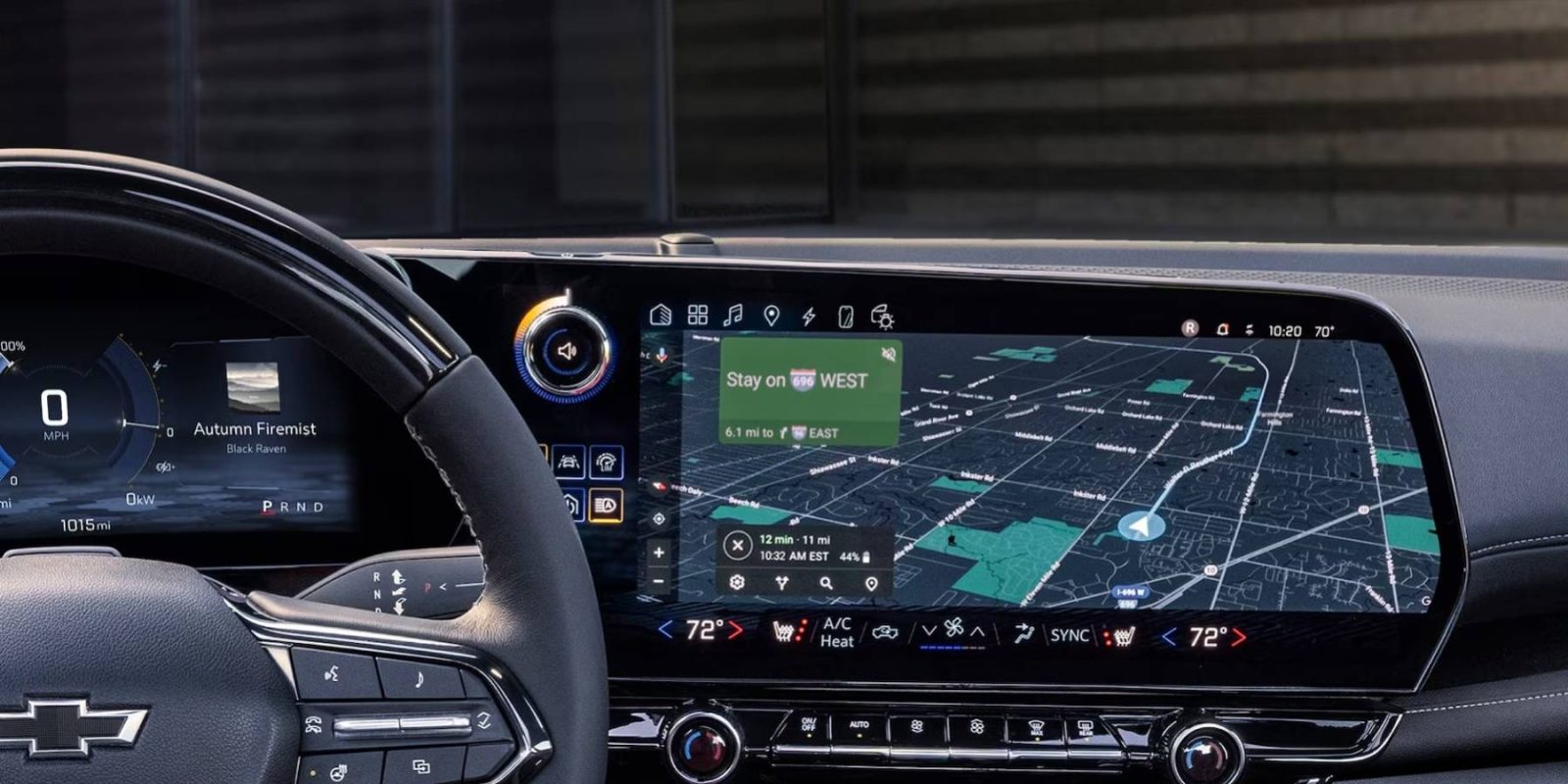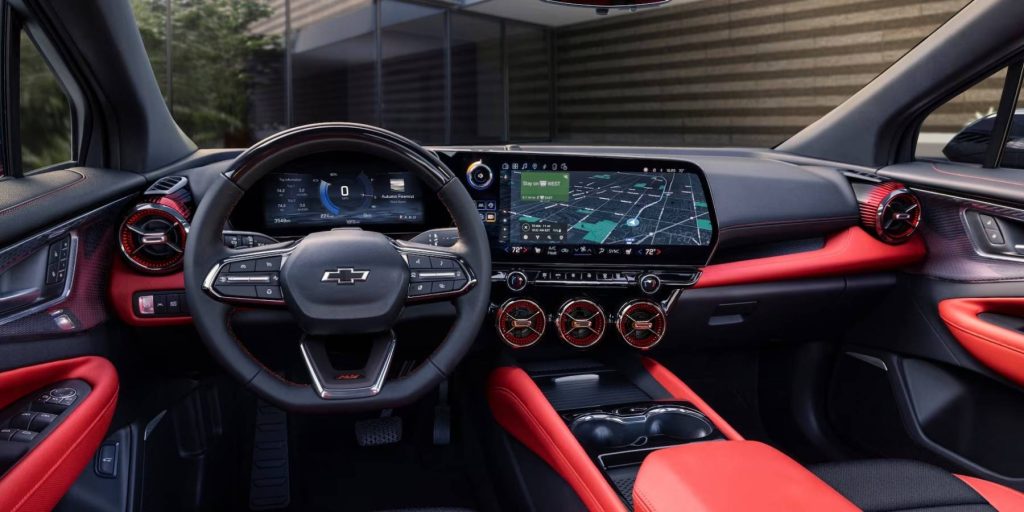
GM has been under fire lately for its decision to pull the plug on Android Auto and CarPlay in its coming electric vehicles, and in a new interview, the company is doubling down on that decision, saying that its built-in OS can be even better than the current projection systems.
The Verge spoke with Scott Miller, GM’s VP of software-defined vehicle and operating systems. Miller obviously plays a major role in decisions regarding software in GM cars, including both projection systems like Android Auto and CarPlay, as well as the company’s upcoming efforts with Android Automotive.
In response to The Verge straightforwardly asking Miller’s opinion on the view that GM’s decision was “terrible,” Miller unsurprisingly disagreed. Rather, he believes that the high demand for Android Auto and CarPlay from customers shows that customers are looking for a better infotainment experience in their cars, but he believes these projection-based systems are not the end.
Miller believes that the current loyalty to Android Auto and CarPlay can be overcome by a native experience that’s even better, which is what the company aims to provide with its take on Android Automotive.
I don’t think anybody would tell you that projection experience is fantastic. Right now, it’s convenient, it’s good, and compared to where we’ve been in the past, it’s been really good.
We do have customer data that says when system is embedded and it just works and you don’t have to fumble with your phone or pair it or do other things with it, you get in your vehicle and everything works seamlessly. It knows you, it recognizes you and sets it up for you. They will like that better.
He adds that a native OS, like GM’s customized version of Android Automotive, reaches a point of “holistic integration” that’s currently not possible with Android Auto and CarPlay. A native OS car provides information on the car’s systems, such as the battery, as well as focuses on navigation that’s tailored for EVs. That’s one benefit Tesla has had with its native operating system.
Miller added that Android Auto and CarPlay aren’t being removed entirely from GM vehicles but rather only from EVs. The company’s gas-powered vehicles will continue to offer both systems.

9to5Google’s Take
There’s still a ton of hate on GM’s decision here, but honestly, Miller’s comments make a lot of sense to me.
The decision to remove Android Auto and CarPlay, features that literally sell cars nowadays, was never going to be a popular one, but GM’s long-term plan here does make sense. A new OS built on Android Automotive offers a lot of the same perks as Android Auto and CarPlay but without the need to plug in your phone. You can still access all of your favorite services, just built directly into the car. Android Auto and CarPlay are great, but when they don’t work, it can be incredibly annoying, and in many cases, the simple minute or two that it takes the projection to get started takes away from the experience.
Top comment by matteventu
I completely understand the reason behind this from a business perspective, however this part of your take:
A new OS built on Android Automotive offers a lot of the same perks as Android Auto and CarPlay but without the need to plug in your phone.
completely ignores the fact that the main selling point of AA/CP is not having to rely on the car manufacturer's effort (or, more accurately, lack thereof) for what concerns ongoing software support (including security patches).
"Having a new OS built on whatever platform" doesn't address that, unless the manufacturer commits (legally) to a 8-15 year cycle of timely support (which, we can already give for granted, these Android Automotive cars won't have).
Also, the second selling point of AA/CP is having internet data (for maps and music) passing through the phone, without having to subscribe to the extortionate data plans that manufacturers offer (after usually giving a 6/12/36 months "free trial" included with the original purchase of the car).
The same thing (internet data via phone) also ensures that the device connecting to the network will "always" use the newest radio technologies (3G/4G/5G etc). Phones are upgraded every 2-3-4 years. Cars tend to last even more than 10 years.
Yes, I'm aware that some of these concerns are actually the very same reason why manufacturers are starting to drop AA/CP support, so they can monetise even more on the users with additional subsciptions, but still.
GM is viewing Android Auto and CarPlay as a stopgap more than the end goal, and that’s not incorrect. With the number of issues that come from running these projection systems, it makes sense to move to a future where the car’s OS is the only one you do need, and that OS just needs to be good. And with Android Automotive, the foundation is clearly there, as our Damien Wilde covered in a review. Apps sync over your data, and the experience feels quite similar to Android Auto.
But at the same time, I get the backlash. Almost every carmaker has a reputation for being awful at built-in software, and we don’t yet know if GM will actually stick the landing here. Even Android Automotive has its quirks, like not having enough apps (that will surely change quickly as more carmakers adopt the platform).
And for iPhone users, the frustration is also very much warranted, given that Android Automotive is drastically different from CarPlay. While Apple Music works on Automotive, Apple Maps doesn’t, and those in Apple’s ecosystem just won’t have the same options available on Google’s platform – of course, Apple is the one locking down so many of its services to its own platforms, but that’s an issue for another day.
There are still places Android Auto and CarPlay make sense, such as when you’re renting a car or borrowing one from a friend. (Android Automotive does still support projection.) But for the everyday commuter, a native OS does seem to be the better future, at least if it’s done right.
More on Android Auto:
- More smart home apps coming to Android Auto and Automotive
- Review: Cheap wireless Android Auto adapters sell for $50 – Are they worth it?
- Tesla competitor Lucid Air luxury EV gets wireless Apple CarPlay and Android Auto
FTC: We use income earning auto affiliate links. More.



Comments